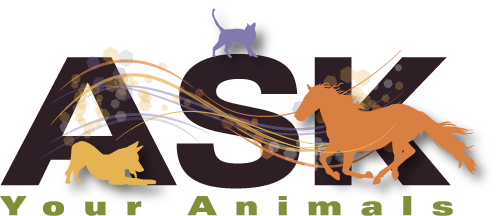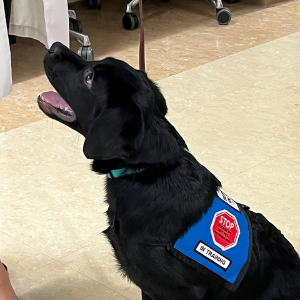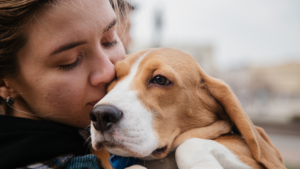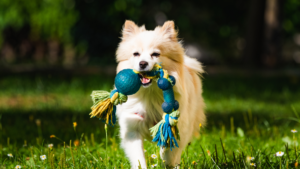Why do you have a service dog? Can I have one? What does a service dog do? Every day, people who have “service dogs” are asked a myriad of questions. Below, we have included several facts that are important for those who do not have them to know. Before we get into them, let’s clarify what a service dog actually is.
Types of Assistance Animals
In the United States, there are 2 types of assistance animals defined by the federal government:
1. Emotional Support Animals (ESA): Under federal law, persons with disabilities do not have public access to these animals. This is because these animals are not required to be trained and are not limited to dogs. However, emotional support animals do have access to housing under the Federal Housing Act. One must have a letter from a qualified professional stating the animal’s presence is needed to mitigate symptoms for a person with a disability.
2. Service Dogs (SDs): These dogs assist people with disabilities and have been trained to perform specific tasks to mitigate symptoms of the person’s disability. Federal law defines service dogs as dogs but does have an exception for miniature horses that meet specific criteria. Service dogs have been trained to alert to changes in body scent indicating a medical issue, guide the blind, retrieve items, alert for sounds, sense allergens in an environment, etc. The person with the disability has access to public areas with the service dog. These dogs must be well-behaved and cannot interfere with an entity’s ability to conduct business. Behaviors not suited for a service dog would be untrained bladder and/or bowel control, pulling to greet people or other animals, uncontrolled vocalization, etc. In the event that a dog begins to have behavioral issues, it’s a good idea to consult an animal communicator to see why.
Encountering Service Dogs
If you see a person with a disability using a service dog, there are two essential things to remember when one encounters them:
- Speak to and maintain eye contact with the person and not the service dog.
- The dog must focus on the handler and its work. Therefore, your behavior should not interfere with the dog and its ability to complete its tasks for its handler.
The following is a list of what is considered an interfering behavior:
- Whistling, barking, or cooing at the animal
- Putting your hands out to pet the dog without asking for the handler’s consent
- Maintaining prolonged eye contact (staring) at the dog
- Praising or commanding the dog.
- Allowing children to interact with the dog without asking the handler’s permission
- Asking the handler why he/she needs the dog
- Asking the handler to have the dog demonstrate its tasks
- Approaching the person and sharing stories about your dog or someone else who uses a service animal
- Asking the person to educate you or your children about service animals
- If you are out in a public area and are allergic or afraid, federal law mandates the person with the service animal has rights to the area. Therefore, it’s important for you to avoid the handler and the dog and not scream or run from the dog if you are afraid. If your allergy is life-threatening, please let the manager of the establishment know so that both of you may be accommodated.
It is polite to remember that the health and safety of the handler depends on the focus and attention of their assistance partner. Please respect the space around the working pair. When appropriate, many dog handlers will be happy to share information about the role of working dogs, however, please let them initiate the conversation.



